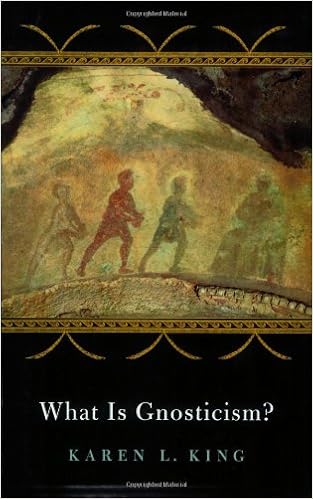Gnosticism, in its earliest variety, was simply heresy. If something did not fit into what became Christian orthodoxy, early writers termed it gnostic--or more often heretical (because the gnostic term itself didn't really come to be until the Middle Ages, and even then, regular usage only really comes into being much later).
Attempts to define and determine the origins of gnosticism begin to make some real headway under Adolf von Harnack, who tied it to the hellenization of Judaism and Christianity. The History of Religions school said, not quite, finding ways to tie it to ancient Eastern philosophies (in, for example, Iran). Still other scholars tied it into pre-Christian Jewish ideas. In general, it would be easiest just to say that gnosticism is syncretic.
But this still begs the question of what gnosticism is. King spends the rest of the book looking at various definitions and then also at primary documents from the gnostics themselves. One trick with regard to discussing gnosticism has been that has largely been defined by its enemies. But when we look at so-called gnostic documents, suddenly there is not as much unity of belief, and "heresies" are not the same across the board. One could easily point to various origins or create various definitions depending on the document examined. For this reason, the term gnosticism may better be simply jettisoned. As King notes, early Christian teachings were in flux, and one can't really say that there was a uniform alternative.







No comments:
Post a Comment